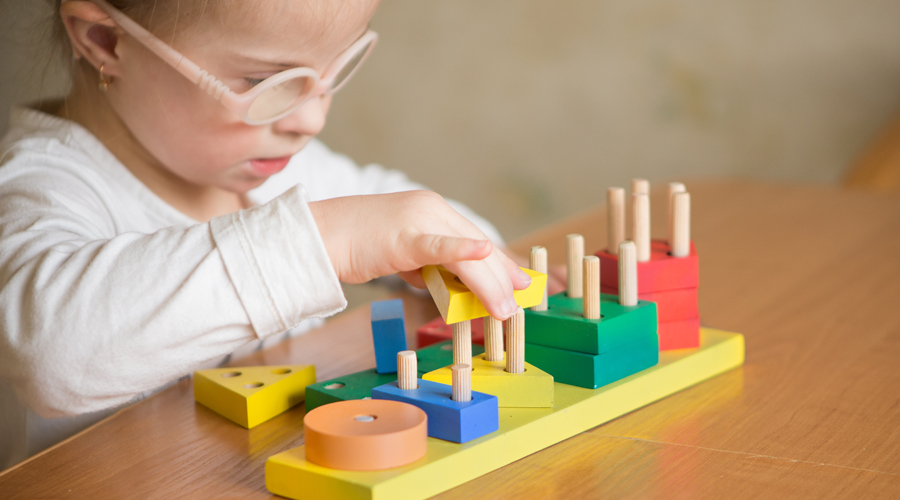The 11-month stay at home has made many children and individuals with special needs more “dependent” on people around them and in some cases their “learning” has suffered, said psychologists and special educators working with them.
Some of the centres are gradually reopening for shorter hours and for individualised therapies and the discomfort of children who had been settled in the home environment is apparent.
Both psychologists and parents said a school or centre trains them in “following a routine” or learning to tolerate discomfort which has suffered a setback during this stay-home period because of the pandemic.
“In school or centres, children or individuals with special needs are under constant guidance. We feel that we are now having to restart again because a lot of unlearning of life skills have taken place during this period,” said Sudeshna Chowdhury, principal of Bhabna Child Development Centre that caters to individuals with autism and intellectual disabilities.
Chowdhury said that there has been a change in the toilet training, sitting and eating habits.
“Even those who are non verbal would show through signs that they need to to go the washroom but now they need support. Also, since their sitting habits have suffered, it is becoming difficult to do activity-based therapy with them,” she said.
A teacher said the children have become restless.
Parents are also facing resistance from individuals to go to centres even if it is for reduced hours.
“My son has to go for two hours in the afternoon but that was a time when he would relax at home and after the first couple of days he has been resisting going to the centre,” said a father whose son has autism.
Psychologists have not just noticed changes in their individual habits but also in their attitude.
“We are noticing that the individuals have become more dependent on their parents or guardians around them and they are unable to think on their own. There is a lack of drive,” said Ishita Sanyal, psychologist and founder of NGO Turning Point.
Sanyal said since they have reopened for reduced hours parents prefer to wait and take the individuals back with them. “While we are doing activities with them we see that many of them are looking at their parents’ who are waiting in the balcony for help or prompting even for simple activities,” said Sanyal.
Not all schools or centres have reopened yet.
Some of the schools or centres that have opened are providing individual therapies or are doing so on the request of parents.
“Once all schools open and for longer duration it will be a testing time for parents and challenge to get them adjusted to a routine that was there before the pandemic,” said Soumen Upadhyay, the general secretary of Parivaar Bengal, a state parents’ federation.
For schools or centres that are yet to reopen but are conducting online sessions, are also noticing a change in the children with special needs and an increase in “restlessness” during the online classes.
“There is a kind of unlearning that has happened in certain areas. This is a loss. The entire workload is on parents and schools are giving guidance to them. It is difficult to do certain therapies like speech, occupational therapy in the online mode,” said Sudakshina Sinha, the co-ordinator of Ahead that caters to individuals from the age group of three.
The centres which have opened are focusing on speech and occupational therapy and training them in activities of daily living.
“For those in early intervention group the social skills and activities of daily living like maintaining their hygiene, combing, toilet training has been hampered. It has happened more who have moved into a comfort zone and in many cases the parents are not trained to give them proper directions. Our focus is to get them back into a routine and are able to follow instructions,” said Siddhartha Sankar Mulhopadhyay, the founder secretary of Kalyani Life Institute.

